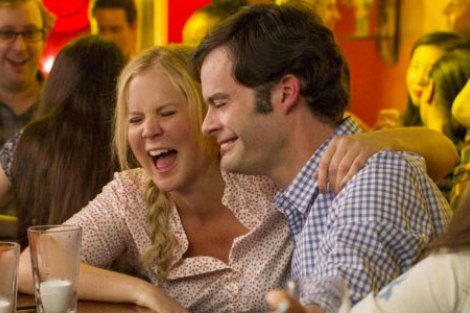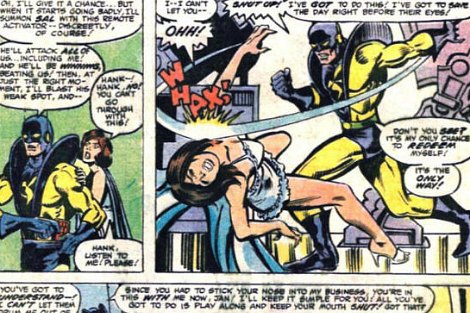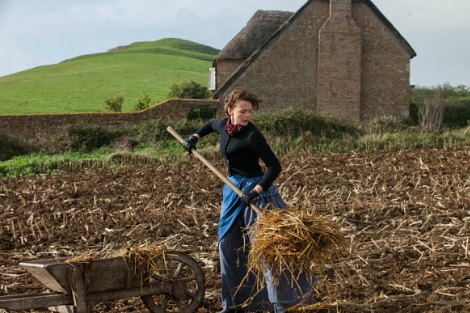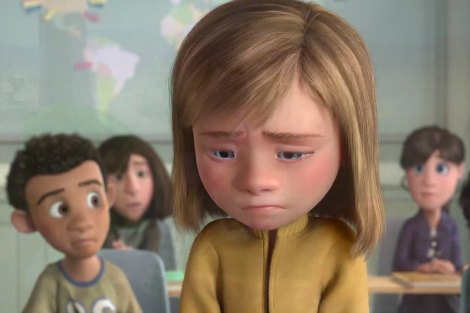Author: Tim Kroenert
There are more than 200 results, only the first 200 are displayed here.
-

ARTS AND CULTURE
- Tim Kroenert
- 10 September 2015
4 Comments
Folk legend and renowned human rights activist Joan Baez's fire hasn't dimmed. Today she rages at the 'disgusting' state of race relations in America — 'police violence, mass arrests of people of colour, torture in prisons' — half a century on from the Selma civil rights marches, in which she took part. Yet amid these horrors, Baez still finds herself able to be moved by examples of 'amazing grace'.
READ MORE 
-

ARTS AND CULTURE
- Tim Kroenert
- 03 September 2015
1 Comment
In part, these hallucinogenic, metaphysical digressions are a product of Robert's medically-altered state of consciousness. Chemotherapy brings a sense of disorientation, which often leads patients' minds to wander in directions they wouldn't have otherwise. Through this, Robert discovers an Eastern spiritual and cultural approach to death that informs his own confrontation of mortality.
READ MORE 
-

ARTS AND CULTURE
- Tim Kroenert
- 27 August 2015
There's a running gag that in Hollywood there are few roles for women over a certain age, unless you are Meryl Streep. Of course it isn't really a joke, if you consider the consistently dire statistics regarding gender, age and race diversity in mainstream American films. Whatever you make of this deplorable inequality, there can be little doubt that Streep is an actor singularly dedicated to her craft, who works hard and throws herself with aplomb into the wide range of roles that come her way.
READ MORE 
-

ARTS AND CULTURE
- Tim Kroenert
- 20 August 2015
25 Comments
Timothy Conigrave's memoir Holding the Man is a classic of contemporary Australian queer literature. Originally published in 1995 a few months after Conigrave's death from AIDS, it is an account of his relationship with John Caleo, whom he met in 1976 when they were both students at the Melbourne Jesuit private boys school Xavier College. Conigrave and Caleo were together for 15 years until Caleo's death (also from AIDS) in 1992. This film adaptation of their story is nothing if not bold.
READ MORE 
-

ARTS AND CULTURE
- Tim Kroenert
- 13 August 2015
The characters, black and poor, inhabit a world where violence is as an expression both of material want and of dignity. One scene sees Marieme and the members of her all-girls soccer team walking home after dark. The girls are garrulous. But in the shadows of the flats, male voices utter vaguely threatening suggestive remarks. The chatter dissipates to silence as the group dwindles to individuals. It's a quietly harrowing picture of women's too-frequently justified fear of violence from men.
READ MORE 
-

ARTS AND CULTURE
- Tim Kroenert
- 06 August 2015
3 Comments
Dismayed by the prognosis that he has only three months to live, Broken Hill cabbie Rex abandons his work, home and mates and sets out for Darwin to seek the help of prominent euthanasia advocate Dr Nicole Farmer (a fictional Dr Philip Nitschke). The story is as much about the journey as the destination, although there are those who would argue that its pat 'choose life' message just feels too easy.
READ MORE 
-

ARTS AND CULTURE
- Tim Kroenert
- 30 July 2015
4 Comments
It's not hard to see why Amy Schumer was offended. Last week, Melbourne KIIS FM breakfast co-host Matt Tilley earned the ire of the proudly feminist comedian by suggesting one of her characters is a 'skank'. The sleight comes not just from Tilley apparently missing the fact that the story is semi-autobiographical. It sits far too easily in a tradition of harmful double standards regarding male and female sexuality.
READ MORE 
-

ARTS AND CULTURE
- Tim Kroenert
- 23 July 2015
1 Comment
It is the most kid-orientated of the recent Marvel films — so maybe not the right forum for deconstructing the domestic violence sins of a key character's past. Still, considering the whole Black Widow/slut-shaming debacle that followed The Avengers: Age of Ultron (and that film's alleged gendered stereotyping of Scarlett Johansson's Black Widow), it is not a good look to note that Marvel president Kevin Feige last year literally laughed off the prospect of spousal abuse being touched on in Ant-Man.
READ MORE 
-

ARTS AND CULTURE
- Tim Kroenert
- 16 July 2015
4 Comments
English literary journalist Lucasta Miller noted that Hardy's title, Far From the Madding Crowd, with 'madding' taken to mean 'frenzied', is an ironic nod to idyllic perceptions of rural life; Hardy 'disrupts the idyll'. At the heart of the story is Bathsheba, a proud and independent young shepherd who becomes the new proprietor of her late uncle's farm. Her story unfolds against stunning rural landscapes that provide a sublime stage for violence both physical and emotional.
READ MORE 
-

ARTS AND CULTURE
- Tim Kroenert
- 09 July 2015
12 Comments
If you're going to apply a blowtorch to an institution as wealthy and litigious as the Church of Scientology, you might best be advised to first apply a magnifying glass. Alex Gibney details the dark side of the movement: its dubious tax-exempt status; allegations of psychological and physical abuse of current members and harassment of former members. But he is equally interested in unpacking the nature of belief in Scientology: what draws people to it, and also what drives them away.
READ MORE 
-

ARTS AND CULTURE
- Tim Kroenert
- 02 July 2015
2 Comments
There are early signs of the substance abuse that would later see her become a target of gleeful media scorn, and ultimately cause her death at the age of 27. But during one interview from the dawn of her career she reflects that if she was famous, she would go mad. She was painfully aware of the gap between the persona painted by a spiteful media and fickle public, and the preternaturally talented working-class girl from London who just wanted to sing.
READ MORE 
-

ARTS AND CULTURE
- Tim Kroenert
- 25 June 2015
Pete Docter was inspired to tell this story after observing changes in his preteen daughter's personality. His research included consultation with psychologists specialising in emotion, including University of California professor Dacher Keltner, whose insights included the role of sadness in strengthening relationships. The story is an exploration on the effects on children of loss and change, and the role of pain.
READ MORE 